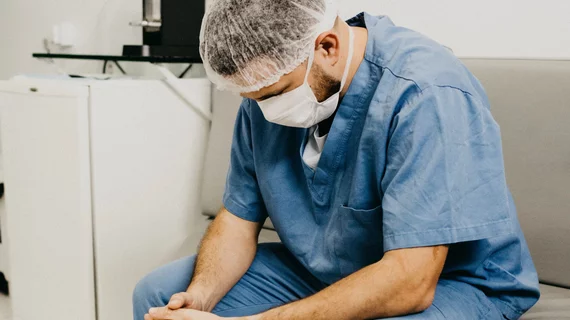Burnout not impacting cardiologists as much as some other physicians
Burnout among cardiologists has improved slightly over the last year, according to a new report from Medscape.
The Physician Burnout & Depression Report 2022, published in full on the company’s website, included survey data from more than 13,000 physicians from 29 different specialties. Four percent of respondents were cardiologists. All surveys were completed from June to September 2021.
“Last year was especially tough for physicians,” according to the report’s authors. “The isolating quarantine of 2020 was over, but in 2021, physicians were trying to get back to work while dealing with reduced staff, COVID stress and an anxiety of having kids heading to school amid the ongoing pandemic.”
Overall, burnout is up among physicians. While 42% of respondents said they experienced burnout in Medscape’s 2021 report, that number has now increased to 47%. Burnout is once again higher among women (56%) than men (41%).
Among cardiologists, however, the burnout rate has decreased from 43% in 2021 to 42%. Cardiology ranks No. 18 among all specialties, landing it fairly close to the back of the pack.
For context, the specialty with the highest burnout rate is emergency medicine (60%), and public health and preventive medicine has the lowest (26%).
Also, “too many bureaucratic tasks” is the most common factor that contributes to burnout. “Lack of respect from administrators/employers, colleagues or staff” came in at No. 2, followed by “too many hours at work.”
Read the full report here.

